- Tutorial
Introduction to Materials Science Maestro Tutorial
An introduction to Materials Science Maestro, covering basic navigation, an intro to building models and several of the key functionalities of the graphical user interface.
- Tutorial
Disordered System Building and Molecular Dynamics Multistage Workflows
Learn to use the Disordered System Builder and Molecular Dynamics Multistage Workflow panels to build and equilibrate model systems.
- Tutorial
Introduction to Geometry Optimizations, Functionals and Basis Sets
Perform geometry optimizations on simple organic molecules and learn basics regarding functionals and basis sets.
- Tutorial
Electronic Structure Calculations of Bulk Crystals Using Quantum ESPRESSO
Learn the basics of the Quantum ESPRESSO interface for periodic density functional theory (DFT) calculations of bulk solids, including convergence testing, geometry optimization, band structures, the density of states (DOS), and the projected density of states (PDOS).
- Tutorial
Machine Learning for Materials Science
Use AutoQSAR to build and rank order numerical QSPR models and apply these models to make predictions on external datasets and analyze these predictions.
- Tutorial
Automated Dissipative Particle Dynamics (DPD) Parameterization
Learn how to build a coarse-grained force field for dissipative particle dynamics (DPD) from an all-atom system by automatically fitting coarse-grained parameters to reproduce an all-atom simulation.
- Tutorial
Polymer Property Prediction
Learn to predict the thermophysical and mechanical response properties of a polymeric material.
- Tutorial
Building, Equilibrating and Analyzing Amorphous Polymers
Build a polymer and create an amorphous cell for molecular dynamics simulations.
- Tutorial
Python API for Materials Science (Part 1: Working with Molecules)
Learn some typical modules and perform exercises for an introduction to the Python API for materials science.
- Tutorial
Introduction to Multistage Quantum Mechanical Workflows
Utilize the Quantum Mechanical (QM) Multistage panel to prepare an automated QM workflow.
- Tutorial
Catalytic Selectivity Through Microkinetic Modeling
Learn to analyze the selectivity of the catalytic oxidation of CO and H2 on a Pd(111) surface using Microkinetic Modeling (MKM) calculations.
Events
 Event
Life Science
Event
Life Science
- Mar 2nd-3rd, 2026
Lab of the Future 2026
Schrödinger is excited to be participating in the Lab of the Future 2026 conference taking place on March 2nd – 3rd in Boston, Massachusetts.
 Event
Materials Science
Event
Materials Science
- Mar 3rd-5th, 2026
Device Packaging Conference 2026
Schrödinger is excited to be participating in the Device Packaging Conference 2026 taking place on March 2nd – 5th in Phoenix, Arizona.
 Event
Life Science
Event
Life Science
- Mar 4th-5th, 2026
Festival of Biologics 2026
Schrödinger is excited to be participating in the Festival of Biologics 2026 conference taking place on March 4th – 5th in San Diego, California.
Webinars
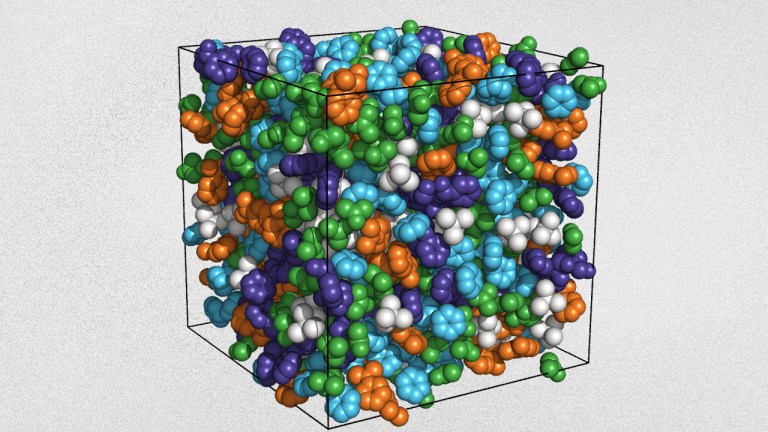 Webinar
Materials Science
Webinar
Materials Science
- Mar 10, 2026
Formulation ML and Optimization: Making advanced property prediction and experimental design fast and accessible
We will showcase how easy it is to apply these tools using experimental datasets across broad MS applications, including formulations, consumer goods, batteries, pharmaceuticals, and beyond.
 Webinar
Materials Science
Webinar
Materials Science
- Mar 18, 2026
The Importance of Human Know-How in AI Execution for Materials R&D
Join us to explore how Schrödinger’s domain experts integrate these three pillars to streamline material optimization.
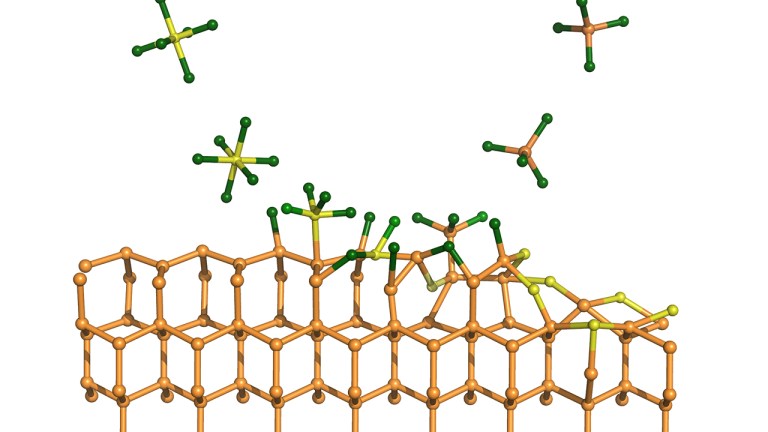 Webinar
Materials Science
Webinar
Materials Science
- Mar 19, 2026
Atomic layer deposition: Bridging theory and experiment to design a process for silicon carbonitride
SchrödingerとLam Researchのコラボレーション事例を通じて、計算科学(DFT)と実験(RGA、FTIR)を組み合わせ、最適な前駆体を効率的に選定するアプローチをご紹介します。
Documentation
- Documentation
Complex Bilayer Builder Panel
Build single or multi-component lipid membranes with or without an embedded membrane protein.
- Documentation
Membrane Analysis Panel
Calculate structural properties for a lipid membrane over the selected frames of a trajectory.
- Documentation
Membrane Analysis Viewer Panel
View plots of the structural properties of a lipid over the course of a molecular dynamics trajectory, generated using the Membrane Analysis panel.
Tutorials
- Tutorial
Introduction to Materials Science Maestro Tutorial
An introduction to Materials Science Maestro, covering basic navigation, an intro to building models and several of the key functionalities of the graphical user interface.
- Tutorial
Disordered System Building and Molecular Dynamics Multistage Workflows
Learn to use the Disordered System Builder and Molecular Dynamics Multistage Workflow panels to build and equilibrate model systems.
- Tutorial
Introduction to Geometry Optimizations, Functionals and Basis Sets
Perform geometry optimizations on simple organic molecules and learn basics regarding functionals and basis sets.
Training Videos
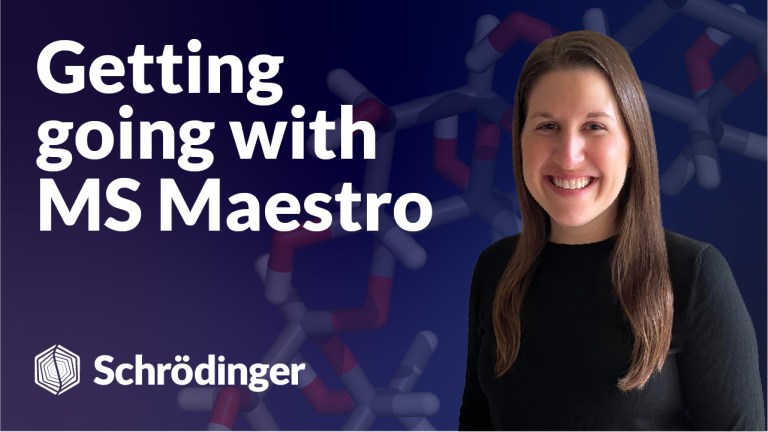 Video
Materials Science
Video
Materials Science
Getting Going with Materials Science Maestro Video Series
A free video series introducing the basics of using Materials Science Maestro.
 Video
Materials Science
Video
Materials Science
Schrödinger’s Materials Science Builder Series: Single Complex Builder
The video demonstrates how to use the Single Complex Builder panel within Schrödinger’s Materials Science Suite to build organometallic complexes.
 Video
Materials Science
Video
Materials Science
Schrödinger’s Materials Science Builder Series: Enumerate Adsorbates
The video demonstrates how to use the Enumerate Adsorbates panel within Schrödinger’s Materials Science Suite to build adsorbate structures for when a gas-phase molecule adsorbs on a solid substrate.
Publications
- Publication
- Jan 20, 2026
Quantum-Enhanced Neural Exchange-Correlation Functionals
Sokolov, et al. Physical Review A, 2026, 113, 012427
- Publication
- Jan 8, 2026
Molecular Dynamics Insights into Ibuprofen Nanocrystal Dissolution Put in the Context of Classical Nucleation Theory
Skrdla, et al. Molecular Pharmaceutics, 2026, 23(2), 1089-1100
- Publication
- Jan 1, 2026
Insights into electrolyte reactivity at the Li metal surface from density functional theory
Agarwal, et al. Computational Materials Science, 2026, 261, 114278
Case Studies
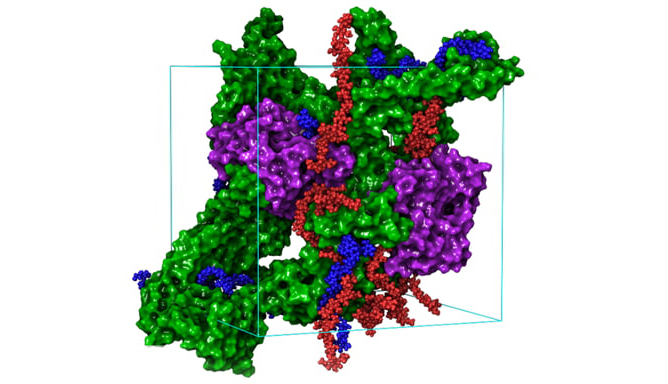 Case Study
Materials Science
Case Study
Materials Science
- Jul 11, 2025
Advancing sustainable food processing through integrated experimental and molecular simulation approaches
Scientists from Schrödinger and UMass carried out comprehensive studies experimentally and computationally to investigate the key properties and extrusion performance of zein-formulated meat alternatives.
 Case Study
Life Science
Materials Science
Case Study
Life Science
Materials Science
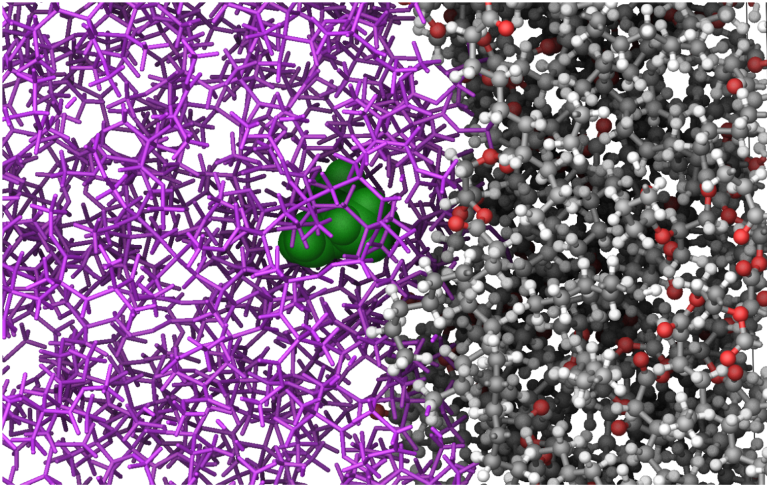 Case Study
Materials Science
Case Study
Materials Science
White Papers
 White Paper
Materials Science
White Paper
Materials Science
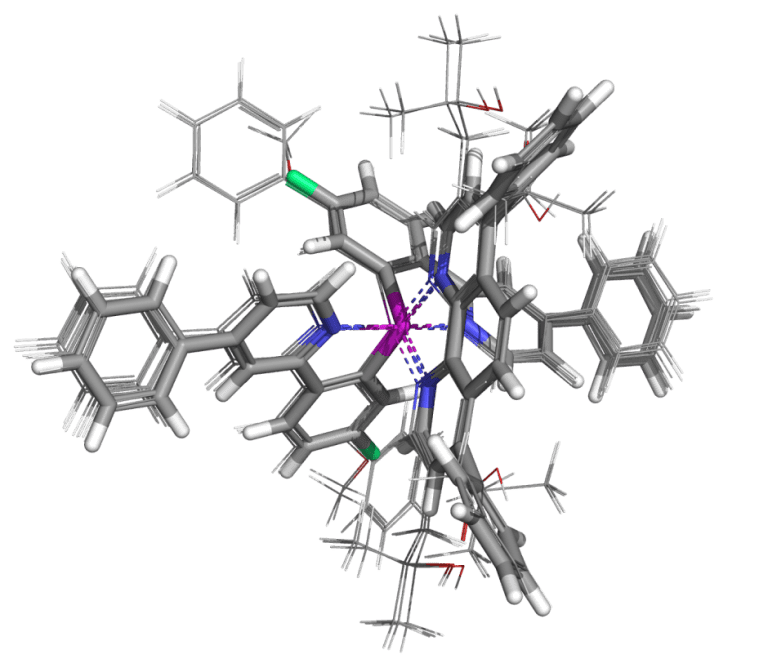 White Paper
Materials Science
White Paper
Materials Science
 White Paper
Materials Science
White Paper
Materials Science
Quick Reference Sheets
- Quick Reference Sheet
Materials Science Panel Explorer
Get an overview of the Materials Science Panel Explorer panel for filtering for tools of interest.
- Quick Reference Sheet
Coarse Grained Mapping
Get an overview of the Coarse Grained Mapping panel for mapping all-atom structures to coarse grained models.

Latest insights from Extrapolations blog
Training & Resources
Online certification courses
Level up your skill set with hands-on, online molecular modeling courses. These self-paced courses cover a range of scientific topics and include access to Schrödinger software and support.
Free learning resources
Learn how to deploy the technology and best practices of Schrödinger software for your project success. Find training resources, tutorials, quick start guides, videos, and more.


